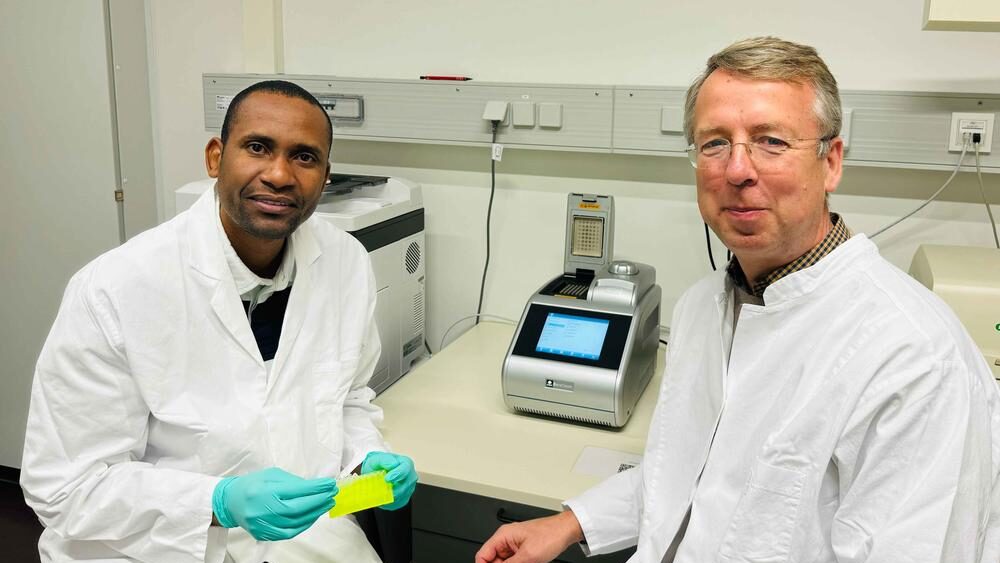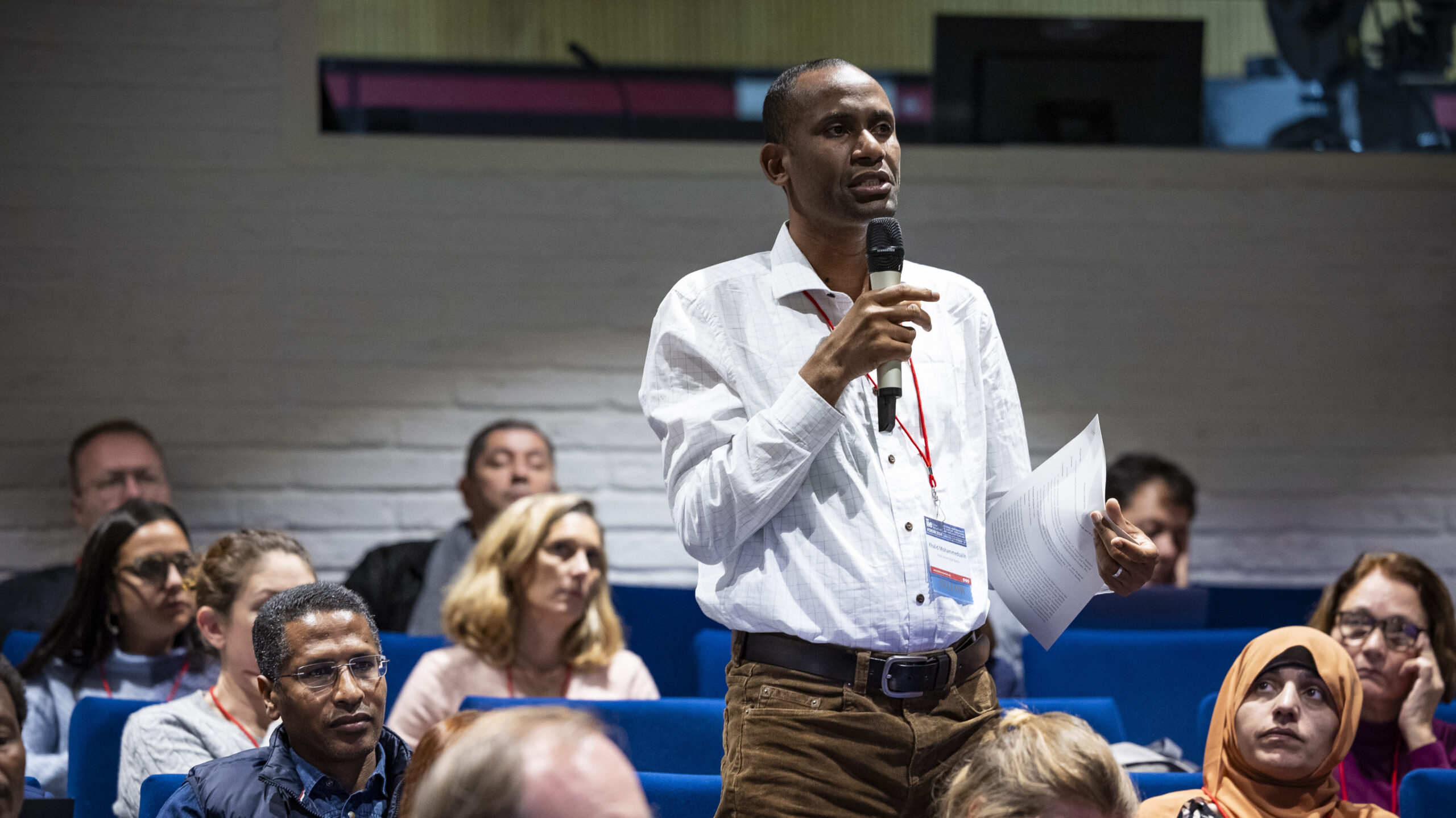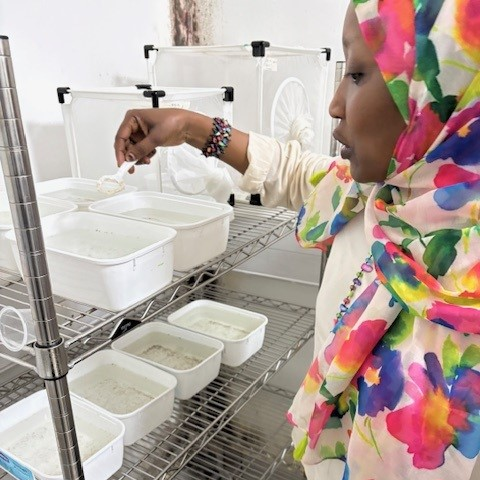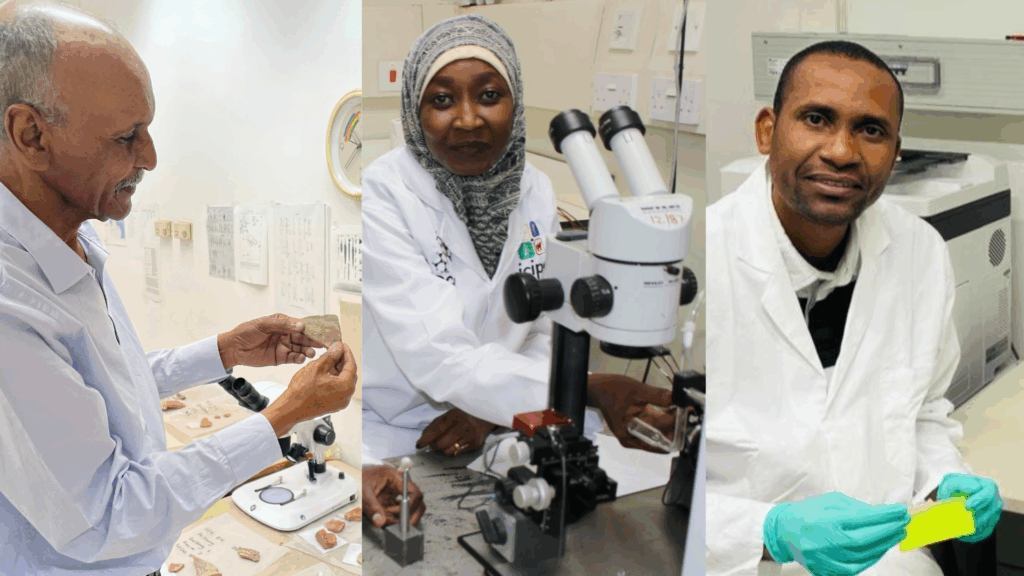The IIE Scholar Rescue Fund Has Awarded Fellowships to 34 Sudanese Scholars, Placing Them in 13 Countries
Dr. Khalid Mohammedsalih was conducting research at the University of Nyala when fierce fighting erupted in Sudan’s capital, Khartoum, upending his life and the lives of millions.
“This began a very tough time for my family and me, for all people in Sudan,” said Dr. Mohammedsalih, a veterinary parasitologist whose laboratory was destroyed in the violence. “My family and I had to flee for our lives several times, at first within Sudan, and eventually out of the country.”
Since clashes erupted between the national army and the paramilitary Rapid Support Forces in April 2023, nearly 13 million people have been displaced and tens of thousands killed in Sudan; in addition, a major famine has taken hold. The international community has called it the world’s largest humanitarian crisis.
Dr. Mohammedsalih’s story reflects the academic fallout of the war. A 2025 study on the impact of the war confirmed the widespread destruction of higher education infrastructure and services within the country, which has displaced thousands of professors, researchers, administrators, and students. Sudanese academics’ careers and lives have been interrupted, and their futures remain uncertain as war has engulfed Africa’s third-largest country.
“Sudan’s once-robust research sector and higher education system has been devastated by the ongoing war,” said IIE Scholar Rescue Fund Director James R. King. “This has already led to long-term challenges for the country, including hindering scientific progress, deepening poverty, and weakening social cohesion. Preserving the knowledge and expertise of Sudanese scholars by providing safe environments for their continued scholarly work is essential to the future rebuilding of a safe and stable future Sudan.”
Through the IIE Scholar Rescue Fund (IIE-SRF), displaced scholars like Dr. Mohammedsalih find refuge and have the opportunity to continue their work and contribute to a new academic community. His research— sparked by his experience working in a veterinary pharmacy in Sudan, where farmers reported ineffective treatments —focuses on antiparasitic resistance in livestock. He is the first researcher to study this significant problem from the field level to the genome in Sudan.

Since December 2023, he has continued his work at the Institute of Parasitology and Tropical Veterinary Medicine at Freie Universität Berlin, analyzing data he collected before the war broke out and preparing it for publication.
“After all, we are an institute specifically for tropical veterinary medicine,” says his research partner at the host university, Georg von Samson-Himmelstjerna. “With his knowledge, experience, and data from Sudan, Khalid Mohammedsalih makes a highly valuable contribution to our institute.”

Sudan accounted for a record half of all IIE-SRF applications in 2023, underscoring both the scale of the crisis and the resilience of Sudan’s academic community. Since the conflict began in April 2023, IIE-SRF has awarded 46 fellowships to 34 Sudanese scholars. Nearly half of the recipients are women. Nineteen Sudanese scholars are now undertaking fellowship appointments at host institutions across four continents, including the Czech Republic, Egypt, Germany, Jordan, Kenya, Malaysia, Oman, South Africa, the United Arab Emirates, and the United States.
Enriching Host Communities
Displaced scholars bring expertise and capacity to their host institutions. Dr. Iman Dawelbeit, a Sudanese expert in medical entomology and public health, is now an IIE-SRF fellow at the International Centre of Insect Physiology and Ecology (icipe) in Nairobi, Kenya. Her research focuses on the plant-feeding behaviors of sand flies and mosquitoes that carry disease, developing new environmentally friendly tools to monitor and control these vectors.



In late October, IIE Scholar Rescue Fund Director James R. King had the opportunity to meet with her at her host institution, where she is able to continue her work in safety alongside an international community of researchers. Through her research, she aims to build the capacity needed to address local public health challenges—work that will be essential when she is able to return to Sudan.
The IIE-SRF fellowship at icipe gave me hope, energy, and the support needed to advance research on insect behavior, improve public health, and tackle vector-borne diseases in Sudan and beyond,”
Dr. Iman Dawalbeit
IIE-SRF Fellow from Sudan
At Sultan Qaboos University in Oman, IIE-SRF fellow Dr. Yahia Tahir, a scholar of archaeology and zoology, is documenting the impact of Sudan’s war on archaeological artifacts while contributing to his host institution. He has led student field visits and participated in archaeological digs, discovering stone hand tools that offer new evidence of human settlement in northern Oman dating back to the Middle Paleolithic period.

“Dr. Tahir has proven to be a valuable asset, contributing significantly to the institution’s academic and cultural environment,” said Dr. Mohamed Hesein, head of the university’s archaeology department. “This hosting experience also helped the institution refine its approach to integrating international scholars, paving the way for smoother collaborations in the future.”
IIE-SRF plays a critical role in safeguarding national academies during times of war and in restoring educational systems once crises end. By supporting scholars to continue their work in safety, IIE-SRF helps preserve the knowledge and expertise that will be essential to rebuilding Sudan’s higher education system—a cornerstone of economic recovery and self-reliance, peacebuilding, and societal progress.
“We at IIE-SRF are deeply humbled by the talent, dedication, and resilience of Sudan’s scholars, and we are honored to support our Sudanese fellows,” said King.
Pastoral farming is a vital sector that secures the livelihood of a large portion of Sudan’s population. Mohammedsalih hopes his research in Germany will help strengthen Sudan’s agricultural system.
“We now have the data that proves farmers are correct in their assessment. The medications do not, in fact, work as they did before, and there is a risk of serious consequences if we do not reverse this trend. We need further research and political measures to stop such a development,” said Mohammedsalih.
Support scholars from Sudan and around the world with a gift to IIE and the Scholar Rescue Fund.
